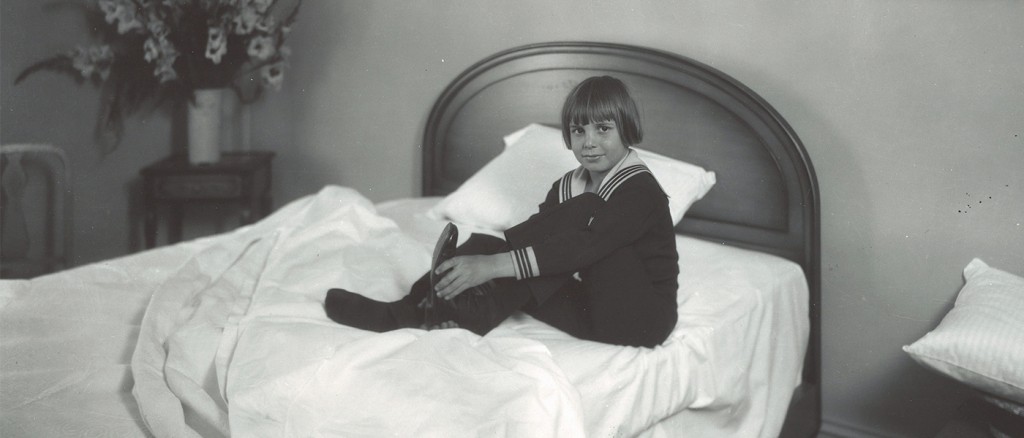One of the hot topics in recent weeks has been the coming together of plans to launch the long-anticipated restoration and reuse of the Hotel Syracuse, slated to reopen in 2016 as the Marriott Downtown Syracuse.
The hotel is one of those grand lodging edifices that were built in the early 20th century, before the Great Depression, World War II and the birth of interstates and suburban sprawl put an end to downtown buildings of that grandeur. The Onondaga Historical Association Museum pays tribute to the historic venue in the current exhibit Lodging Landmark: The Heritage of the Hotel Syracuse.
When the hotel was about to open in 1924, there was great anticipation in the community. Hotel management hosted a formal opening banquet in the Terrace Dining Room (now known as the Persian Terrace) as the 11th-floor Grand Ballroom was not quite finished. But who would the first official guest be? Management wanted a public relations triumph, perhaps the president or maybe the governor. Instead, the hotel landed “The Kid,” better known as child actor Jackie Coogan.
Forty years later, Coogan would achieve TV immortality as Uncle Fester in the 1960s black- comedy series The Addams Family. Yet during the Roaring ’20s, the 6-year-old Coogan had achieved movie fame when he co-starred in the sentimental silent classic The Kid, written, produced, directed and edited by its leading man, Charlie Chaplin.
Aside from his national star status at the time, Coogan had strong Syracuse connections. His family had resided here for several generations and in 1924 his grandparents still lived at 210 Wayne St., a house that still stands. Jackie’s father, John Henry Coogan Jr., was a vaudeville performer who traveled the circuit, but the family was often based in Syracuse. Jackie was actually born in Los Angeles, but he and his family lived in Syracuse for several months, during the 1917-1919 period, with his grandparents on Wayne Street. Jackie’s family was back in Los Angeles in 1920 as his career was taking off.
Coogan was cast in other child roles in more films during the 1920s, but his career waned as he grew older. After his father’s death in a 1935 auto accident, Coogan sought some of the $4 million fortune he had already earned. Unfortunately, his mother and her new husband had the rights to it. He had to sue but gained only a relatively small out-of-court settlement of $126,000. The incident resulted in California legislation in 1939 to protect the earnings of child stars, still known as the Coogan Act. He remained a Hollywood figure, however, in part due to his brief marriage in 1937 to actress Betty Grable.
During World War II Coogan served in the Pacific Theater as the Army pilot of a troop transport glider. He appeared in uniform in Syracuse for a special bond drive and morale-boosting campaign during late 1944.
Coogan’s career seemed over in the 1950s as he took bit parts, but he rose to prominence again with his zany portrayal of Uncle Fester in the popular Addams Family sitcom from 1964 to 1966. After that, he would continue making appearances as a character actor on TV shows and a handful of movies. Coogan reunited with Chaplin in 1972, when the Little Tramp was presented with an honorary Academy Award. When they met at an airport, the elderly Chaplin whispered in Coogan’s ear, “I think I would rather see you than anyone else.” Coogan passed away in 1984 at age 69.
Ironically, even though he signed a guest card as the first official guest at the Hotel Syracuse in 1924 and posed in a hotel room bed removing his shoes, he reportedly did not actually stay overnight in the hotel.
The original special Coogan guest card is currently on view at the Onondaga Historical Association Museum, 321 Montgomery St., along with the opening banquet menu (ginger ale was served, as Prohibition was the law in 1924), other artifacts and several historic images of the hotel. Lodging Landmark: The Heritage of the Hotel Syracuse runs through Aug. 2.
Dennis Connors is curator of history at the Onondaga Historical Association.
Header photo: Jackie Coogan at Hotel Syracuse.



